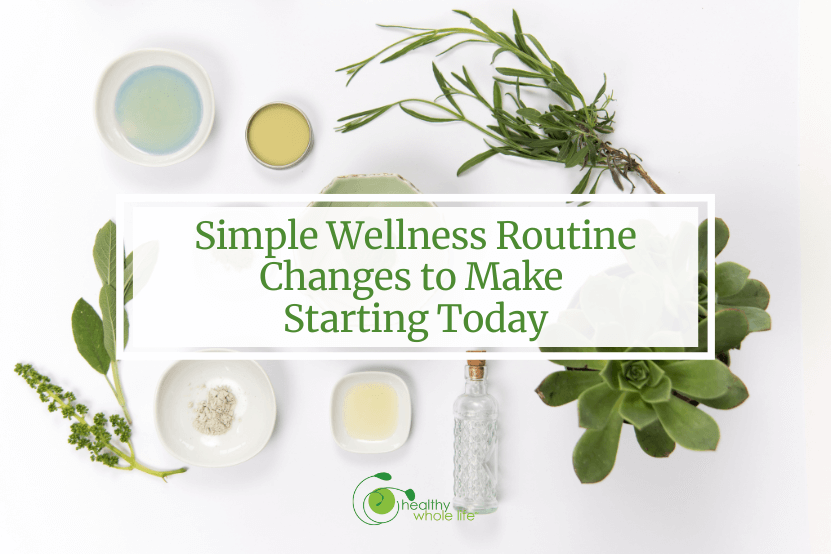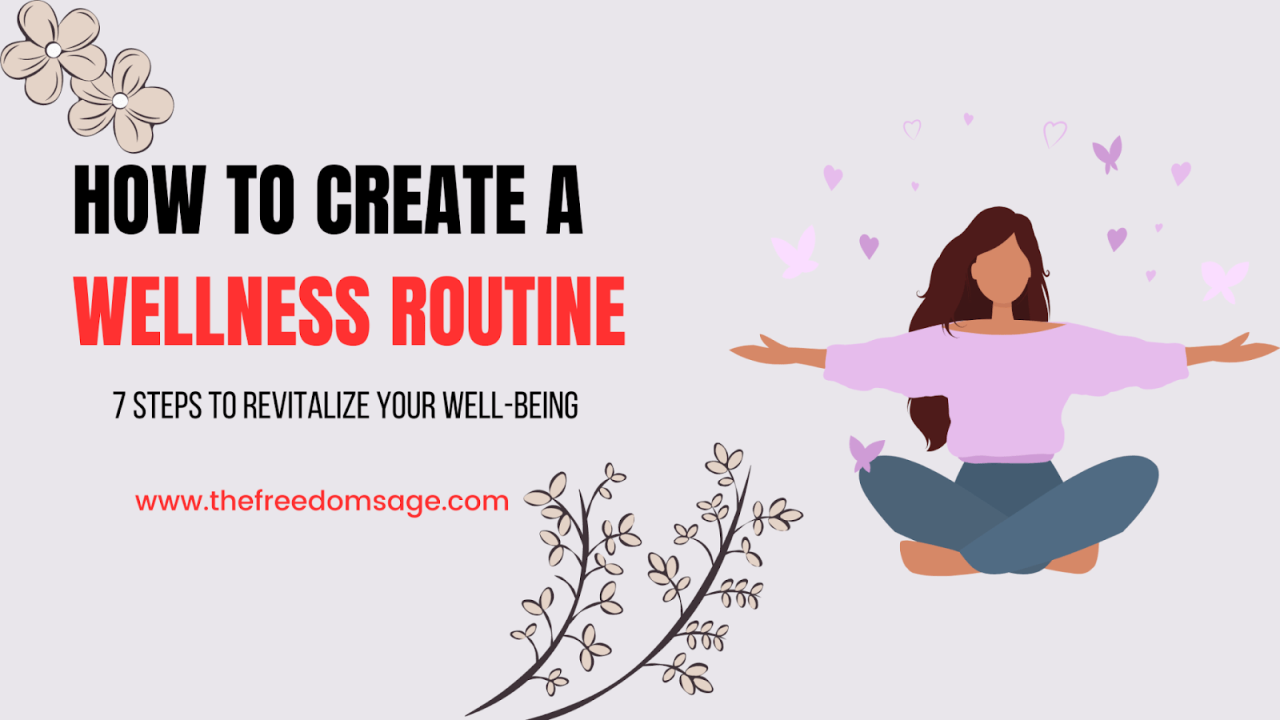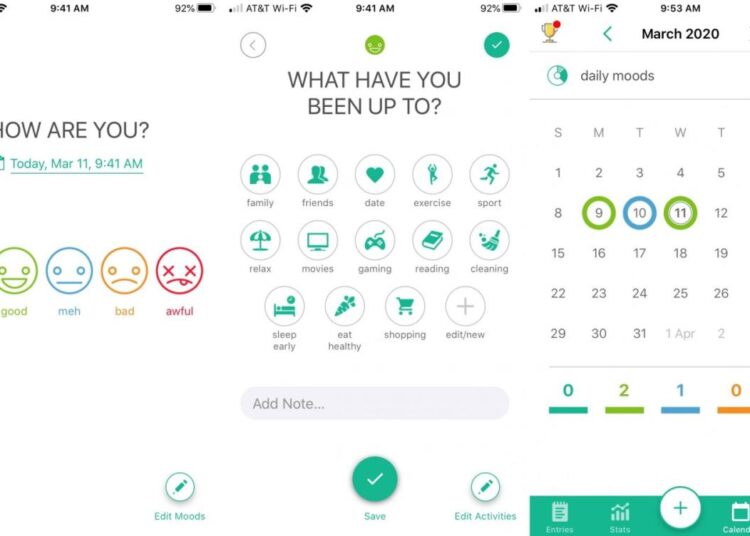
Embark on a journey of self-care with our guide on how to build a daily wellness routine at home. Discover the secrets to enhancing your overall health and well-being right from the comfort of your own space.
Explore the key components and benefits of maintaining a consistent wellness routine, tailored to your individual needs and preferences.
Importance of Daily Wellness Routine

Having a daily wellness routine is crucial for overall health as it helps in maintaining a balanced lifestyle and taking care of both physical and mental well-being.
Benefits of Maintaining a Consistent Wellness Routine at Home
- Improved physical health: Regular exercise, healthy eating habits, and self-care practices can boost immunity and reduce the risk of diseases.
- Enhanced mental well-being: Establishing a routine can reduce stress, anxiety, and improve mood by providing a sense of structure and control.
- Increased productivity: Following a wellness routine can lead to better focus, concentration, and energy levels throughout the day.
- Better sleep quality: Engaging in relaxation techniques and winding down activities before bed can promote restful sleep.
How a Wellness Routine Can Impact Mental Health Positively
A consistent wellness routine at home can positively impact mental health by providing a sense of stability, reducing feelings of overwhelm, and promoting self-care practices that prioritize emotional well-being.
Designing Your Wellness Routine
To create an effective daily wellness routine, it is essential to include key components that address various aspects of health and well-being. This can include physical exercise, mental relaxation, healthy eating habits, and adequate rest. Personalizing your routine based on individual needs and preferences is crucial to ensure it is sustainable and enjoyable.
Physical Exercise
Regular physical activity is a cornerstone of a wellness routine. This can include activities such as cardio, strength training, yoga, or simply going for a walk. Find activities that you enjoy and can easily incorporate into your daily schedule.
Meditation and Mindfulness
Taking time for meditation and mindfulness practices can help reduce stress, improve focus, and promote mental clarity. This can be done through guided meditation sessions, deep breathing exercises, or simply taking a few moments to be present and mindful.
Healthy Eating Habits
Nutrition plays a significant role in overall wellness. Include a variety of fruits, vegetables, whole grains, lean proteins, and healthy fats in your diet. Stay hydrated and avoid excessive consumption of processed foods, sugary drinks, and unhealthy snacks.
Quality Sleep
Adequate rest is essential for physical and mental well-being. Aim for consistent sleep patterns, create a relaxing bedtime routine, and ensure your sleep environment is conducive to quality rest. Prioritize getting 7-9 hours of sleep each night.
Personalization
Consider your individual preferences, lifestyle, and goals when designing your wellness routine. Tailor the activities, duration, and intensity to suit your needs. Listen to your body and make adjustments as needed to ensure you stay motivated and committed to your routine.
Creating a Schedule
Setting a schedule for your wellness routine is crucial for ensuring consistency and making it a part of your daily life. A well-planned schedule helps you prioritize your health and allows you to allocate time for different wellness activities without feeling overwhelmed.
Best Time of Day for Different Wellness Activities
When planning your wellness routine, consider your own energy levels and preferences to determine the best time of day for each activity. Here are some tips to help you find the optimal timing:
- Exercise: Morning workouts can boost your energy levels for the day, while evening workouts can help you unwind and de-stress after a long day.
- Meditation: Starting your day with meditation can set a positive tone, while evening meditation can help you relax and improve sleep quality.
- Healthy Eating: Plan your meals around your daily schedule to ensure you are nourishing your body at the right times.
Listen to your body and choose the time of day when you feel most energized and motivated to engage in different wellness activities.
Staying Consistent and Committed
Consistency is key when it comes to establishing a daily wellness routine. Here are some strategies to help you stay on track:
- Set realistic goals: Start small and gradually increase the intensity or duration of your wellness activities to avoid burnout.
- Track your progress: Keep a journal or use apps to monitor your daily habits and celebrate small victories along the way.
- Find an accountability partner: Share your wellness goals with a friend or family member who can support and motivate you on your journey.
Remember, building a daily wellness routine takes time and effort, but the benefits to your physical and mental well-being are worth it in the long run.
Setting Realistic Goals
Setting realistic goals is a crucial aspect of building a daily wellness routine. It helps in providing a clear direction, motivation, and a sense of accomplishment. Here are some strategies for setting achievable goals and how it impacts your overall progress:
Strategies for Setting Realistic Goals
- Start Small: Begin by setting small, manageable goals that you can easily achieve on a daily basis. This will help build momentum and confidence.
- Be Specific: Clearly define your goals, making them measurable and specific. For example, instead of saying “exercise more,” specify a goal like “30 minutes of yoga every morning.”
- Set Realistic Timelines: Give yourself enough time to achieve your goals without feeling overwhelmed. Setting unrealistic deadlines can lead to frustration and demotivation.
- Celebrate Progress: Acknowledge and celebrate the progress you make towards your goals, no matter how small. This positive reinforcement can boost motivation.
Impact of Goal-Setting on Motivation and Progress
Setting realistic goals plays a significant role in keeping you motivated and accountable in your wellness routine. It provides a clear roadmap for your daily activities and helps you track your progress effectively. By achieving these goals daily, you build a sense of accomplishment and confidence, fueling your motivation to continue with your routine.
Moreover, setting specific and achievable goals allows you to see tangible results, which further boosts your motivation and drives your progress towards overall wellness.
Incorporating Self-Care Practices

Self-care practices are essential for maintaining overall well-being, especially when included in a daily routine. These practices not only benefit physical health but also play a crucial role in improving mental and emotional well-being.
Examples of Self-Care Practices
- Practicing mindfulness and meditation to reduce stress and increase focus.
- Engaging in physical activities like yoga, walking, or dancing to boost mood and energy levels.
- Taking time for hobbies or activities that bring joy and relaxation, such as reading, painting, or gardening.
- Ensuring proper nutrition by preparing balanced meals and staying hydrated throughout the day.
- Setting boundaries and learning to say no when feeling overwhelmed or stressed.
Importance of Self-Care for Mental and Emotional Well-Being
Self-care is essential for mental and emotional well-being as it allows individuals to recharge, relax, and manage stress effectively. By prioritizing self-care practices, individuals can improve their mood, boost self-esteem, and enhance overall quality of life.
Tips to Prioritize Self-Care Within Your Routine
- Identify self-care activities that resonate with you and bring you joy.
- Schedule self-care time in your daily routine, treating it as non-negotiable me-time.
- Practice self-compassion and avoid guilt when taking time for yourself.
- Start small and gradually incorporate more self-care practices into your routine.
- Seek support from loved ones or professionals to hold yourself accountable for prioritizing self-care.
Utilizing Technology and Apps
In today’s digital age, technology has made it easier than ever to build and track a wellness routine. By utilizing various apps and tools, you can stay organized, motivated, and focused on your health and well-being goals.
Fitness Tracking Apps
There are numerous apps available that can help you track your physical activity, set fitness goals, and monitor your progress. Some popular options include:
- Fitbit: Tracks steps, distance, calories burned, and active minutes.
- MyFitnessPal: Helps you track your food intake and exercise to reach your weight loss goals.
- Strava: Ideal for runners and cyclists to track workouts and connect with a community of like-minded individuals.
Mental Health Apps
For mental well-being, there are apps designed to reduce stress, improve mindfulness, and track your mood. Consider trying out:
- Headspace: Offers guided meditation and mindfulness exercises to reduce stress and anxiety.
- Calm: Provides relaxation techniques, sleep stories, and breathing exercises for better mental health.
Nutrition Apps
When it comes to nutrition, apps can help you plan healthy meals, track your calorie intake, and make better food choices. Check out:
- MyPlate: Allows you to log your meals, track your macros, and set nutrition goals.
- Fooducate: Scans food products to provide nutritional information and help you make healthier choices at the grocery store.
Adapting Your Routine Over Time
It’s crucial to adapt and modify your wellness routine periodically to ensure continued progress and effectiveness in achieving your goals. As our bodies and minds change over time, our needs and priorities also evolve, making it essential to adjust our routines accordingly.
Recognizing When Adjustments are Needed
Recognizing when adjustments are needed in your routine is key to maintaining a successful wellness practice. Here are some tips to help you identify when changes are necessary:
- Monitor Your Progress: Keep track of your progress towards your goals and assess whether you are seeing the desired results. If you are not making the progress you had hoped for, it may be time to make some changes.
- Listen to Your Body: Pay attention to how your body feels during and after your wellness activities. If you are experiencing pain, fatigue, or discomfort, it may indicate that certain aspects of your routine are not working for you.
- Evaluate Your Mental Health: Mental well-being is just as important as physical health. If you are feeling overwhelmed, stressed, or anxious, it may be a sign that your routine needs to be adjusted to include more self-care practices.
Making Necessary Changes
Once you have recognized that adjustments are needed in your routine, it’s important to listen to your body and mind to make the necessary changes. Here are some steps to help you adapt your routine over time:
- Consult with a Professional: If you are unsure about how to modify your routine, consider consulting with a wellness coach, personal trainer, or healthcare provider for guidance.
- Experiment with Different Activities: Try incorporating new activities or exercises into your routine to keep it fresh and engaging. This can help prevent burnout and keep you motivated.
- Be Flexible: Remember that your routine is not set in stone. Be flexible and willing to make changes as needed to ensure that it continues to meet your evolving needs.
Outcome Summary

As you conclude your reading, remember that prioritizing your wellness is a daily commitment to yourself. Let this guide inspire you to create a routine that nurtures both your body and mind for a happier, healthier you.
FAQ Overview
How can I make my wellness routine more personalized?
To personalize your routine, consider your preferences, lifestyle, and goals. Experiment with different activities and find what works best for you.
Are there any recommended apps for tracking wellness goals?
Some popular apps for tracking wellness goals include MyFitnessPal, Headspace, and Calm. These can help you stay on track and monitor your progress effectively.
Why is it important to adapt my wellness routine over time?
Adapting your routine ensures that it remains effective and engaging. Listen to your body and mind to identify areas that need adjustment for continued progress.









